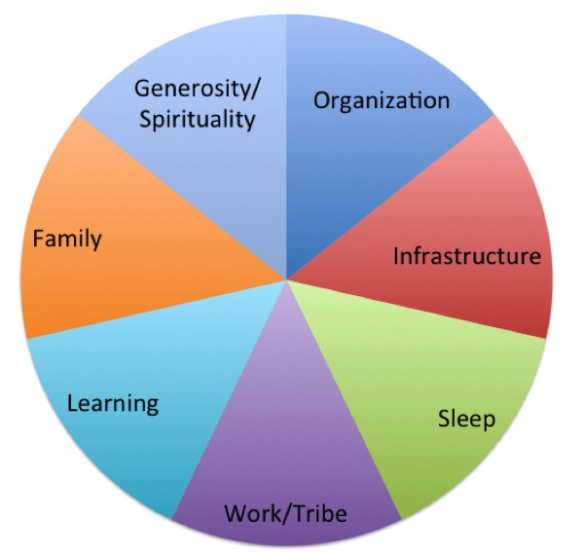“Failure does not strike like a bolt from the blue; it develops gradually according to its own logic. As we watch individuals attempt to solve problems, we will see that complicated situations seem to elicit habits of thought that set failure in motion from the beginning. From that point the continuing complexity of the task and the growing apprehension of failure encourage methods of decision making that make failure even more likely, and then inevitable.”
- Dietrich Dorner THE LOGIC OF FAILURE, p. 10
Introduction:
I stumbled across Hallowell’s 2005 “Overloaded Circuits: Why Smart People Under Perform” last week. Key sound bites:
- “Caused by brain overload ADT [Attention Deficit Trait] is now epidemic … core symptoms are distractibility, inner frenzy, and impatience.”
- On David Neeleman (CEO of JetBlue Airways) inventing the e-ticket “It seems fitting that someone with ADD would invent a way around having to remember to bring a paper ticket.”
- “As a specialist in learning disabilities I have found that the most dangerous disability is not … dyslexia or ADD. It is fear. … When the frontal lobes approach capacity and we begin to fear that we can’t keep up, the relationship between the higher and lower regions of the brain take an ominous turn. Thousands of years of evolution have taught the higher brain not to ignore the lower brain’s distress signals.”
- “In survival mode, the deep areas of the brain assume control and begin to direct the higher regions. As a result, the whole brain gets caught in a neurological catch-22.”
Hallowell, who is an MD, focuses on fear. Fear reminded me of the Dietrich Dorner quote at the top of this post. *Note* This quote is the distilled essence of Dorner’s entire book. And then, Hallowell’s focus on fear gave me a flashback to the *RELIEF* that implementing GETTING THINGS DONE has given. In large part, GTD has released me from inner frenzy and fear.
Hallowell’s Prescription:
“Overloaded Circuits” had prescriptions for avoiding Attention Deficit Trait, but unfortunately, they were recommendations given from 50,000 feet. For example: “Take physical care of your brain, Organize for ADT, Protect Your Frontal Lobes.”
This kind of “be rich when you grow up” advice is well and good, but, it does not move me to action. I need advice that is operational. For example, on my first reading of GETTING THINGS DONE, David Allen said “get a reference filing system” which spurred me to realize that Evernote would henceforth be my reference filing system.
Next Post …. Personally Operationalizing Allen/Hallowell:
GETTING THINGS DONE has been powerful in pulling me out of survival mode. But, … by itself it has not been enough to keep me out of survival mode. Over time I’ve incorporated additional tools, William Dement’s THE PROMISE OF SLEEP, Ken Robinson’s THE ELEMENT (Work/Tribe fit), and six other tools. The following pie chart is a map of the other elements that I’ve needed to add to my GTD Macro Trusted System.

Next post I’ll step through the pie chart cherry picking 3 most important operational elements of each slice. See you then!
bill meade
